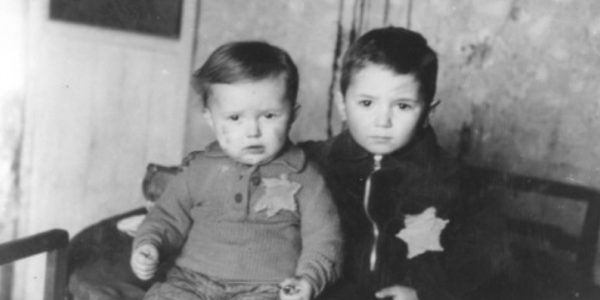
by Sergejus Kanovičius
The weird memory wars continue. Thank God they are being waged only in the virtual arena and, it seems to me, the atmosphere surrounding these memory gun-battles is becoming calmer and more on-topic.
Just last year after one large public event, the term “fellow citizens” began to be used very widely to refer to Jewish Holocaust victims. In one discussion where I objected that it wasn’t useful to underline the fact that “our fellow citizens” were murdered, because beyond the limits of this invitation to repentance remain many non-citizens of Lithuania who were victims of mass murder in Ponar and the Ninth Fort in Kaunas, I was presented with a rather unique argument, which goes something like this: by saying “our” fellow citizens were murdered, we make the victims “our own people,” meaning they become closer or dearer to us. Perhaps. I have noticed that even refined and let’s say modern nationalists who before now have not wanted even to mention the Holocaust, much less the victims, have begun gradually to get used to the idea, which becomes for them a kind of indulgence of forgiveness for saying anything at all on the topic. From among those modern and rather square nationalists you might overhear the following: “Well, since it was our ‘fellow citizens’ who were murdered, that’s a bad thing; killing Jewish ‘fellow citizens’ is unpatriotic.” This is the deconstruction of the nationalist’s reasoning having undergone, excuse the phrase, some degree of liberalization. But what about murdering non-citizens?
I’m not a lawyer, but it seems to me this constant emphasis–sincere or not–on Holocaust victims being Lithuanian citizens tends to undermine any sort of human compassion expressed, whether it be Christian, Jewish or Buddhist, undermining the moral dimension of regret, the feeling when you want to say simply and sincerely: I am sad for them, that shouldn’t have happened. And it doesn’t matter in which country those people held citizenship.
And for those whom the legal aspect is important: let them determine and count how many holders of Polish passports from occupied Vilnius, how many French nationals, how many citizens of independent or Soviet-occupied Lithuania lie buried in those pits. If someone is truly sorrowed for these people, it’s surely not because they were citizens of a certain country.
I was moved to write this by a photograph posted recently on social media; it seems there are people who still remember and remind others of the Lietūkis Garage massacre carried out on June 27, 1941. The photograph has in common with the massacres that it is from another future site of tragedy, the Kaunas ghetto. The photograph secretly taken by Kaunas ghetto inmate Zvi Kadushin (Hirsh (George) Kadish) is of two children. They will be murdered. As will be so many children, so many it seems pointless to write the number.
When we think about regret and repentance (if we are really thinking about it), do we need to note or be interested in the citizenship of these two souls?
Full article in Lithuanian here.


